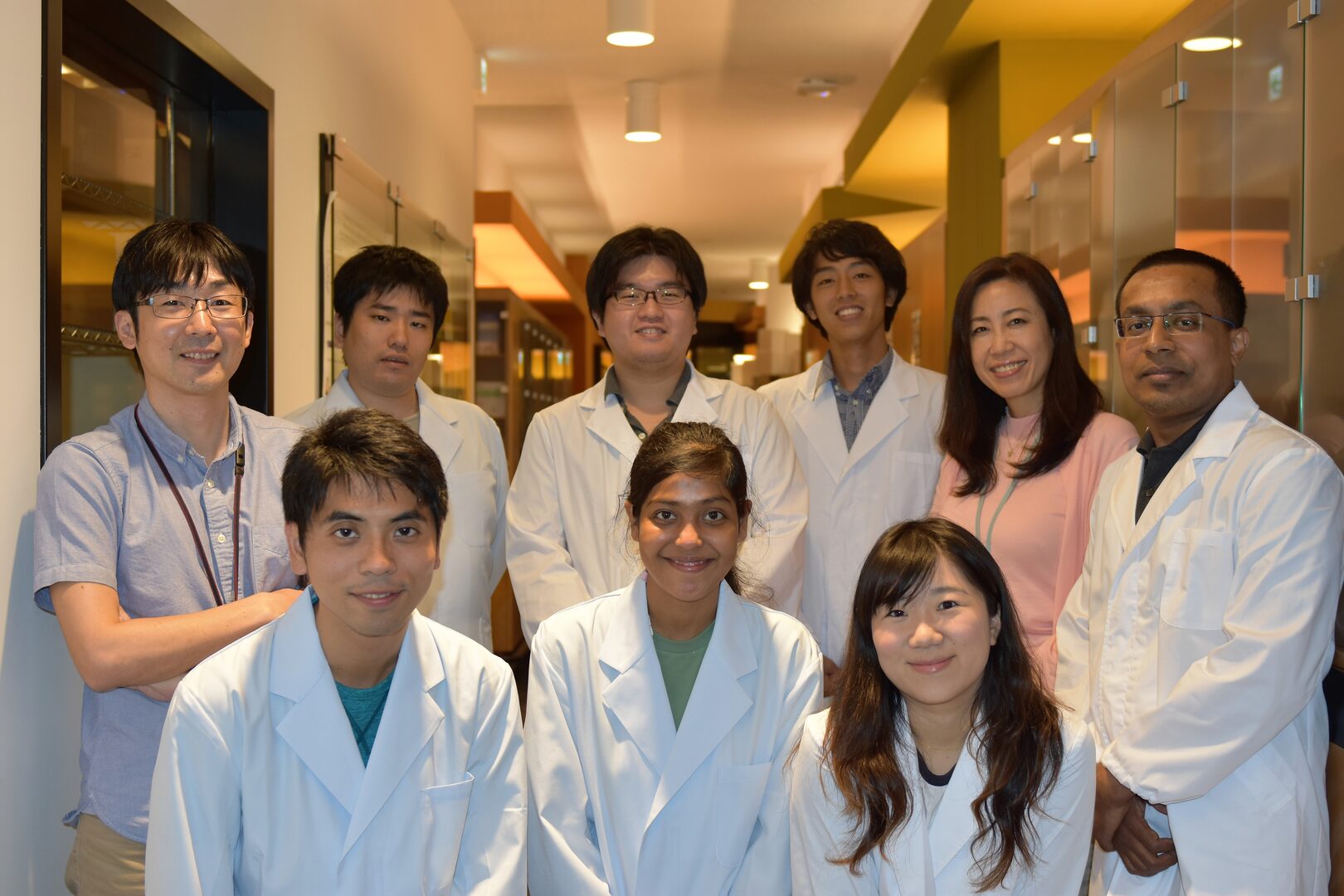2015 Annual Report
Immune Signal Unit
Assistant Professor Hiroki Ishikawa

Abstract
Immune signal unit studies immune mechanisms causing diseases. Immune system has developed to defend our body against invading pathogens, although dysregulation of the system can cause diverse diseases including allergy and autoimmune diseases. An important event in immune responses is generation of helper T cells. Upon recognition of a specific antigen, naïve CD4 T cells differentiate into several effector helper T subsets which lead to different outcomes of immune responses. T helper 17 (Th17) subset plays a central role in many of autoimmune diseases. Cytokines TGF-b and IL-6 are required for the priming of Th17 differentiation. However, another cytokine IL-23 is essential for generation of disease-causing Th17 cells. We are focusing on the mechanism of IL-23-dependent pathogenic Th17 generation. In FY2016, we identified a critical transcription factor for IL-23-dependent generation of pathogenic Th17 cells.
1. Staff
- Hiroki Ishikawa, Assistant Professor
- Hayato Yamada, Postdoc
- Zafrul Hasan, Postdoc
- Bijay Parajuri, Postdoc
- Saori Nishijima, Technician
- Shiho Okitsu, Technician
- Rika Yoshizawa, Research Administrator
2. Collaborations
Nothing to report.
3. Activities and Findings
CD4 T helper (Th) cells play a critical role in orchestrating adoptive immune responses against not only various pathogens infection but also self-antigen triggering autoimmunity. Upon recognition of a specific antigen, naïve CD4 T cells differentiate into different effector subsets. Among them, recently identified Th17 is involved in various autoimmune diseases. Cytokines TGF-b and IL-6 are required for the priming of Th17 differentiation. However, another cytokine IL-23 is essential for the full differentiation of pathogenic Th17 cells. Although the critical role of IL-23 for pathogenic Th17 differentiation has been demonstrated, the molecular mechanism of IL-23-dependent pathogenic Th17 differentiation remains unknown.
To elucidate the mechanism of IL-23-dependent pathogenic Th17 differentiation, in FY2014, we screened IL-23 responsive genes by microarray analyses and identified several genes whose expression was upregulated by IL-23. In this screening, we identified one transcription factor which is critical for IL-23-dependent Th17 differentiation. In FY2015, we generated mice deficient for the transcription factor and characterized functions of JunB in Th17 differentiation in vitro.
Our data showed that loss of the transcription foctor impaired IL-23-dependent pathogenic Th17 differentiation, but not TGF-b-dependent non-pathogenic Th17 differentiation. We found that the factor was required for RORgt induction by promoting DNA-binding of BATF, IRF4 and STAT3 at the Rorc locus in IL-23-dependent pathogenic Th17 cells, but not in TGF-b1-dependent non-pathogenic Th17 cells. These data suggests that the newly identified transcription factor is specifically required for IL-23-dependent pathogenic Th17 differentiation. We will investigate the functions of this gene in in vivo Th17 differentiation next fiscal year.
4. Publications
Nothing to report
4.3 Oral and Poster Presentations
Ishikawa, H. HLX1 regulates differentiation and function of CD4 T helper cells. 22nd East Asia Joint Symposium on Biomedical Research, Onna, Okinawa, 2015
5. Intellectual Property Rights and Other Specific Achievements
Nothing to report
6. Meetings and Events
Nothing to report
7. Other
Nothing to report.



